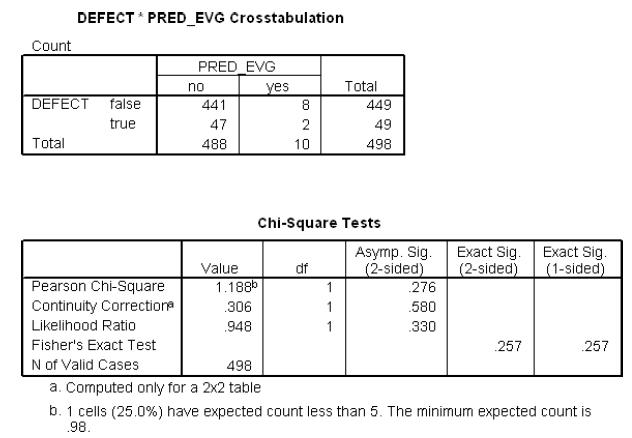The PROMISE Software Engineering Repository, hosted by the School of Information Technology and Engineering, University of Ottawa,
Question:
The PROMISE Software Engineering Repository, hosted by the School of Information Technology and Engineering, University of Ottawa, provides researchers with data sets for building predictive software models. Data on 498 modules of software code written in C language for a NASA spacecraft instrument are saved in the SWDEFECTS file. Recall that each module was analyzed for defects and classified as “true” if it contained defective code and “false” if not. One algorithm for predicting whether or not a module has defects is “essential complexity” (denoted EVG), where a module with at least 15 sub flow graphs with D-structured primes is predicted to have a defect. When the method predicts a defect, the predicted EVG value is “yes”; otherwise, it is “no.” A contingency table for the two variables, actual defective status and predicted EVG, is shown in the SPSS printout on p. 461. Interpret the results. Would you recommend the essential complexity algorithm as a predictor of defective software modules? Explain.

Step by Step Answer:

Statistics For Engineering And The Sciences
ISBN: 9781498728850
6th Edition
Authors: William M. Mendenhall, Terry L. Sincich





